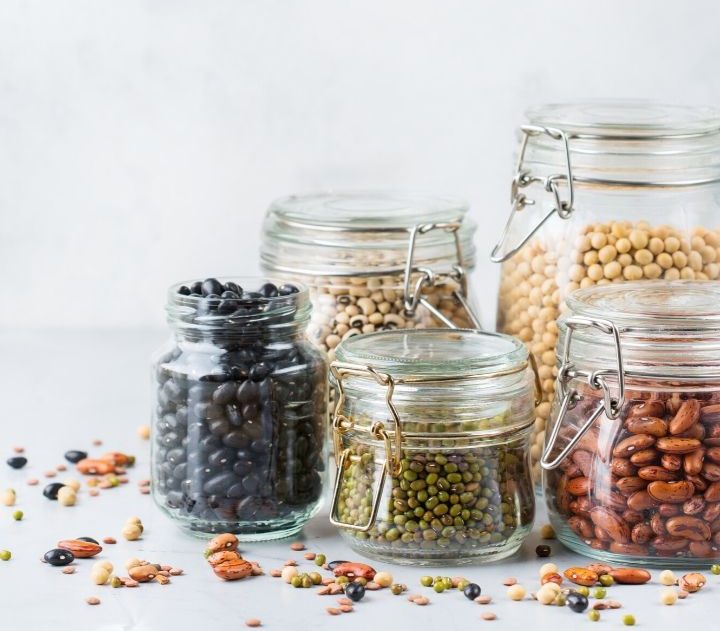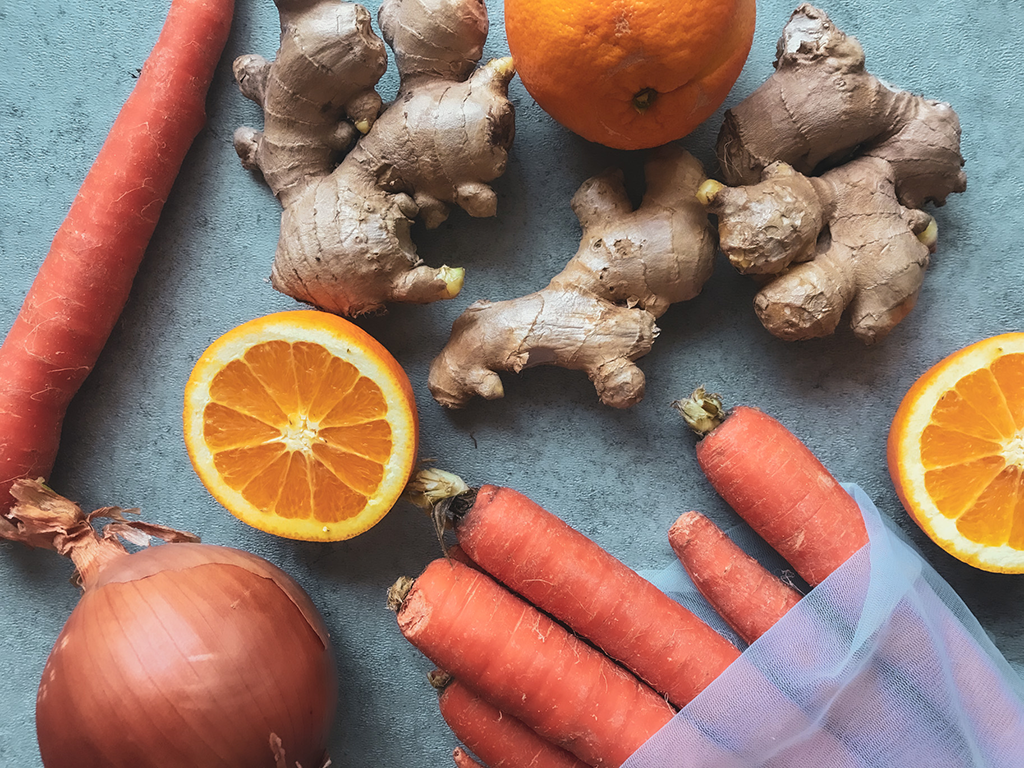
Best Vegan Protein Sources
Where do you get your protein?
By far the #1 question vegans get asked. While it’s usually the first topic of discussion when you tell someone you’re vegan, it’s not exactly warranted.
The amount of protein the average person needs daily is 50g, which is totally doable to meet and even surpass on a vegan diet.
Protein is found in so many plant based foods, so if you’re eating enough, you’re more than likely getting all the protein you need as a vegan. Plus, vegan protein usually doesn’t have any of the cholesterol and saturated fats that animal protein usually comes with.
Still, vegans and protein get brought up a lot, and it’s important to be able to answer these questions confidently. Here’s a list of the best vegan protein sources if you or anyone else has doubts about where vegans get their protein:
1. Soy – tofu, tempeh, edamame, soy milk
No surprise here. Tofu is a common soy product and what most people think of when thinking about vegan protein sources – and for good reason. Tofu is a highly nutrient-dense, high protein food with all the essential amino acids.
Just 100g of tofu contains 8g of protein, 20% RDI of calcium, and 9% RDI of iron. When comparing calories-to-protein, tofu beats chicken, eggs, and cheese. Pretty incredible!
Other soy protein sources include tempeh, which is made with fermented soy and has a nuttier texture and taste than tofu, edamame, which are the actual soybean, and soy milk. Furthermore, many mock meat alternatives are made with soy.
Ways to incorporate soy into your meals:
While some people are concerned about the phytoestrogen present in soy – you might hear some men claim you can get “man boobs” from soy, for instance – research shows that there is weak evidence to suggest that consuming soy has any of these negative side effects.
Even though you can rest assured that regular consumption of soy won’t cause any unwanted hormonal effects, I would still refrain from eating it every day, as most soy products are processed foods.
Soy is totally fine to have a few times a week and will help you get ample amounts of protein and other important nutrients, but it’s highly recommended you look at protein sources that are whole foods, such as:
2. Legumes – beans, lentils, pea protein
Legume is just a fancy word for beans, lentils, and peas, and they’re all amazing, versatile sources of protein!
Just 100g of lentils, for instance, contains 9g of protein, 90% RDI of folate, and 49% RDI of manganese.
Some of the best legumes you can easily add to your meals are black beans, chickpeas or garbanzo beans, and split peas. (Note: soybeans are technically legumes as well, but they serve their own category!)
Ways to incorporate legumes in your meals
You may have heard of pea protein before, as products such as nondairy milks and pea protein powder have recently come on the market. Most notably, the Beyond Meat Burger is made from pea protein and not from soy. These are great high protein options for anyone who is hesitant about soy or who may have an allergy.
3. Wheat gluten aka Seitan
Better known as seitan (say-tan), this vegan meat substitute is made from hydrated gluten, which is the main protein found in wheat.
Out of all the plant based proteins on this list, seitan has the chewiest, most meat-like texture in my opinion. Avant Garde Vegan has so many recipes on making seitan into ribs, roasts, beef, chicken, and more at home.
Seitan is an incredible source of protein with almost zero fat. Even though it’s made from wheat, it’s actually quite low in carbs since most of the starch is washed away in the process of making seitan – one serving contains just 4g of carbs.
Wheat gluten is extremely high in protein. A 1 oz serving of seitan typically contains a whopping 21g of protein.
While it’s super high in protein, seitan is not considered a complete protein, as it’s missing adequate amounts of lysine, which you can easily get from beans. Also, it goes without saying that wheat gluten is not suitable for people with a gluten allergy.
Overall, wheat gluten or seitan is an excellent source of protein, especially for those with a soy allergy. Like soy, however, it is considered to be highly processed and should not be eaten everyday.
4. Grains – rice, quinoa, oats
A lot of people forget that grains like rice and wheat contain more than adequate amounts of protein. And if you’re Asian like me and eat a ton of rice, this is music to your ears.
Grains like oats, rice, quinoa, and breads are staples in almost every diet and every meal, making it easier to hit your protein markers. Any slice of bread, for instance, has about 5-7g of protein.
Quinoa is awesome because it’s a complete protein, meaning it has all the essential amino acids that our body can’t produce on its own. Just 1 cup of quinoa contains over 8g of protein.
If you have whole grains present in all your meals, you’re most likely getting enough protein throughout the day.
Ways to incorporate grains into your diet:
5. Protein-packed Vegetables
We’ve always been told to “eat your veggies,” and thankfully, vegetables have protein too!
People tend to focus on getting in their greens, which is great since a lot of greens are veggies with some of the highest amounts of protein. Spinach, broccoli, brussel sprouts, artichokes, and green peas are all pretty fantastic sources of veggie protein.
One cup of cooked spinach, for example, has over 5g of protein, 36% RDI iron, and 19% RDI calcium.
You hopefully won’t be scarfing down plates of just cooked spinach anytime soon (unless you’re Popeye!), but simply adding roasted veggies, sauteed veggies, salads, etc. to your daily meals will definitely help you hit your protein intake goals faster.
6. Nuts & Seeds – hemp, chia, peanut butter
If it seems like vegans are always going on and on about seeds like hemp and chia, it’s because they are absolute gamechangers for thriving on this diet!
Chia seeds and hemp seeds are some of the easiest ways to add tons of protein into your meals and smoothies because they are tiny-but-mighty powerhouse protein sources.
Hemp seeds have 5g of protein per tablespoon and chia seeds contain 4g of protein per 2 tablespoons. When you add a few tablespoons of each into your daily smoothies or oatmeal, you can see how the protein quickly adds up!
Nuts are also an excellent source of vegan protein and super easy to have as snacks or in nut butters. Peanut butter, for instance, contains 8g of protein in one tablespoon.
Nuts and seeds are not only great for getting in protein, but they are fantastic sources of so many other nutrients that are just as vital as protein, such as iron and omega-3s.
The next time you make a smoothie or shake, don’t be afraid to load it up with chia and hemp seeds, and maybe even a spoonful of peanut butter! That smoothie will contain ample amounts of protein – even without any protein powder.
Ways to incorporate nuts and seeds into your diet:
- Chia seed pudding
- Creamy sauces
- In shakes and smoothies!
Final Takeaways
From this list, it’s clear that there are a variety of different vegan protein sources that are all amazing in their own way. The takeaway: eat them all!
Don’t rely on just one source of protein on your plate. The foods talked about on this list are meant to be combined and alternated with each other for reaching optimal protein levels. (Think – a rice, beans, tofu, and veggie bowl, for instance?! You’d be set!)
The bottom line is you most likely will never become protein deficient on a vegan diet if you’re eating enough and are eating a variety of foods.
For me, protein isn’t even on my mind – I don’t track my protein intake at all, and I don’t drink protein shakes. And still, my blood test results for the past 3 years show that my protein levels are extremely healthy and have never even been close to being low.
So, don’t worry about it so much and try not to mind the doubters who don’t believe that you can get enough protein on a vegan diet. Keep eating balanced, plant based foods, and you’ll be just fine!





